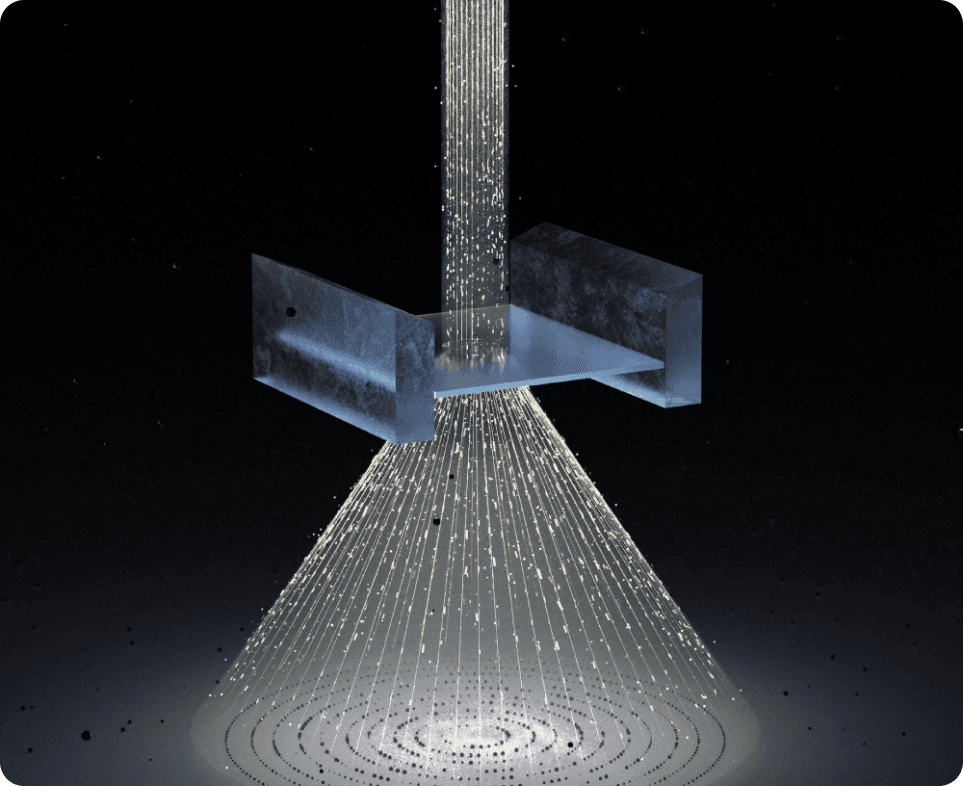eTaseD™
As a novel crystallographic method, MicroED exploits the advantage that electrons interact much more strongly with material and posit considerably less damaging energy into a crystal. Electron diffraction data can be collected from extremely small nanocrystals at a low dose, which not only benefits structure research of organic compound, but also for crystallizing problematic proteins. With this new modality in cryo-EM, novel structures considered untraceable before were successfully determined today.
Schematic diagram of the stage-camera synchronization

Benefiting from eTasED, microED can be realized on a conventional cryo-EM system without any modification
Tailored for single-frame camera. The stage tilting and sample illumination are activated and inactivated at predefined time points so that they are only activated within the effective exposure step of an exposure cycle.Available for movie-mode camera. With a movie-mode camera, the exposure time can be set much longer than that of a single-frame camera, such that each tilting-exposure cycle covers a large or even entire range of the tilting angle.Compatible with 120kV TEM. Ultrahigh-resolution diffraction data of peptide nanocrystals is collected on 120-kV electron microscopes, resulting in resolution up to ∼0.60 Å with unambiguous assignment of nearly all hydrogen atoms.
With the application of e-TasED, structures not only for small molecules but also for peptides and proteins can be realized by microED in SHUIMU.
Proteinase K
1.50 Å, 29.05 kDa(protein)FUS LC RAC1
0.65 Å, 0.66 kDa(peptide)Acetaminophen
0.65 Å, 0.66 kDa(peptide)See Unseeable.
Drug Undruggable.
Founded in 2017, Shuimu BioSciences aims to bring the power of cryo-EM to innovative therapeutics developers.Contacts
1 Broadway 5th floor, Cambridge, MA 02142, United States+1 (650) 680 9383
Hi@shuimubio.com
Copyright © 2025 Shuimu Biosciences Ltd.
京ICP备2020035593号